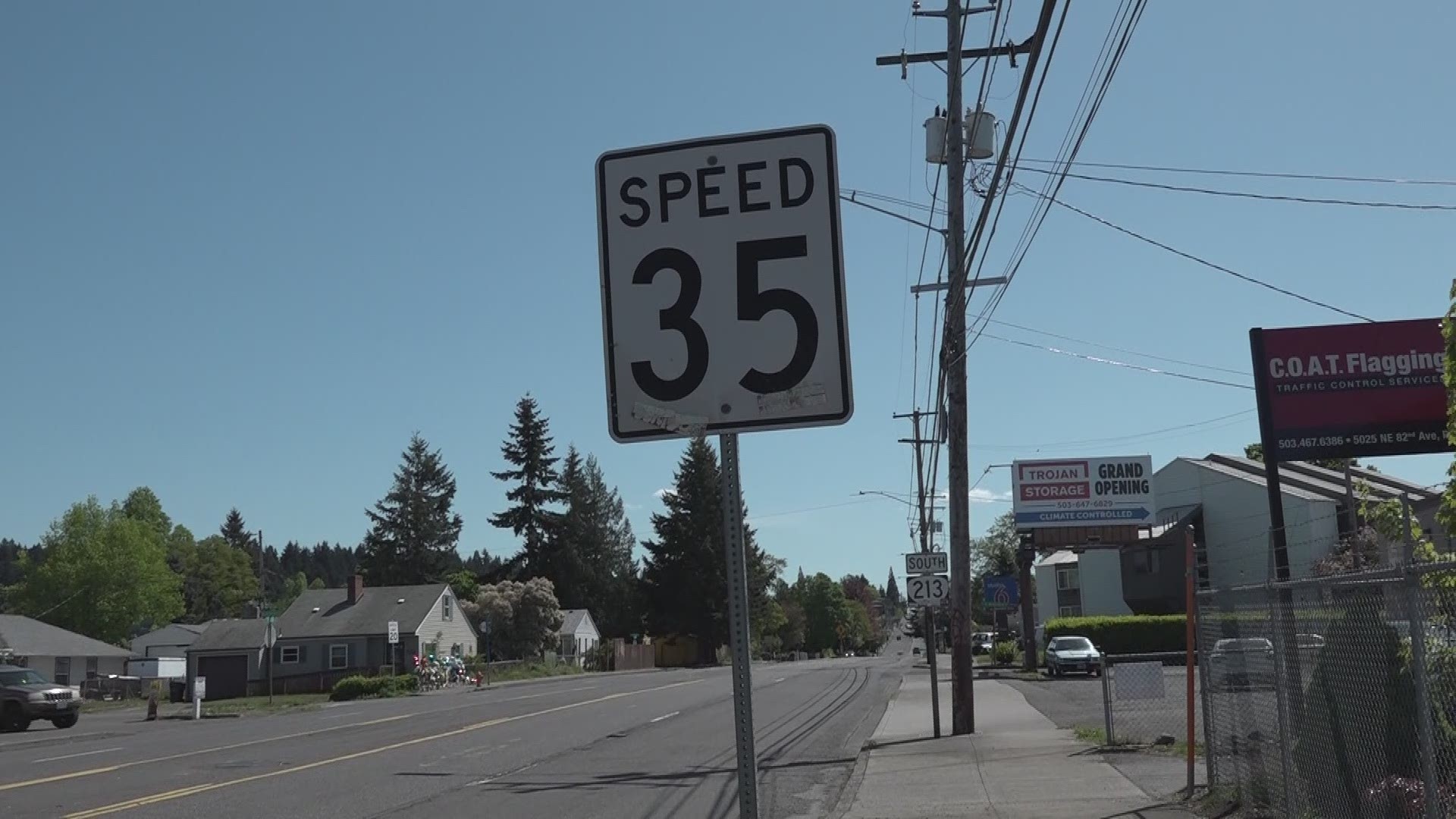PORTLAND, Ore. — Last month, within a span of two weeks, two pedestrians were struck and killed on Northeast 82nd Avenue within two city blocks: Stephen Looser and Anthony Tolliver.
Now, Oregon Walks, a pedestrian safety advocacy group is demanding the Oregon Department of Transportation (ODOT) place an emergency speed reduction on the road. It's the first in a series of steps that the group says will save lives.
While we were out on the story, Scott Kocher, an Oregon Walks board member, clocked at least one driver going 65 mph on his hand-held radar gun. Speeds close to that were frequent. The speed limit on Northeast 82nd Avenue is 35 mph.
Kocher said the road no longer serves its original purpose, a farm-to-market highway. Now it's a residential street, still owned and maintained by ODOT.
"This is a roadway that's designed for speed," Kocher said. "You can look at any particular crash that happens here and you can say, 'OK, this one was the pedestrian's fault. This one was the driver's fault. This one was because it was dark. This one was because it was raining.' Well, the one thing that all of those crashes have in common is speed."
The Portland Bureau of Transportation (PBOT) asked ODOT for a speed reduction about a year ago, but that request remains unanswered. So Oregon Walks requested another one. And that’s just the first step, advocates say, to make this a safer street.
"When you have a street that is narrower, that has more crossings, that has narrower lane widths, has fewer lanes, has better lighting, all of these things make a street safer," Kocher said. "It encourages safer driving behaviors and it discourages those extreme driving behaviors that we've seen here this morning."
Michelle DuBarry lost her 1-year-old son in 2010 to a careless driver on a similar state-owned highway doubling as a neighborhood street in North Portland. She knows the grief these two families are suffering right now.
"I know that they will pick up the pieces, they'll move on with their lives," Dubarry said. "But they'll never recover from the trauma of losing somebody like this. It's so unnecessary."
Dubarry is affiliated with Families For Safe Streets. They are a group of people who have lost loved ones in fatal crashes and are working to make streets safer for everyone.
"It's an incredibly violent way to die and it's incredibly common for people to die this way," she said. "As a culture, we treat it very casually because we think of it as like the cost of living in a modern society that people just have to die from cars, but it doesn't have to be that way.
"The community has been begging them to improve this street for years and years and years. And they haven't. And so when something like this happens, it's entirely predictable and it's not an accident it's, it's totally preventable."
82nd Avenue is what's referred to as an "orphan highway." Roads like it are controlled by the state. Oregon lawmakers are considering a bill to return them to local control. It’s a move Oregon Walks believes can help lead to much needed safety improvements.

